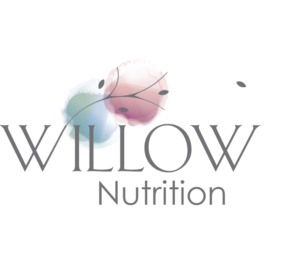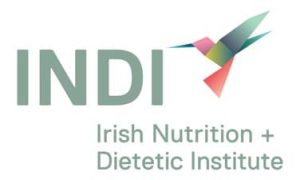Firstly let’s start with what PCOS is…
Polycystic Ovarian Syndrome (PCOS) is often a misunderstood and sometimes misdiagnosed syndrome which can leave people feeling lost, confused and anxious. PCOS can affect anyone with ovaries.
Roughly 1 in every 10 of child bearing age are affected by PCOS worldwide. There is no cure for PCOS but it can be managed with the proper support!
Diet and lifestyle are considered first line treatment in the management of PCOS and yet unfortunately medical management appears to be what most women are offered first. Unfortunately there is a lot of conflicting and confusing information out there in regards to diet and PCOS. Often people with PCOS are told to lose weight to help their symptoms. However we know that this is not always straightforward and can be very challenging for those with the condition. As a result we see high incidences of disordered eating, eating disorders, low self-esteem, mood and depression in those with PCOS.
That is one of the many reasons why I do not advocate for a restrictive dietary approach or using the goal of weight loss as a focus of dietary intervention when it comes to supporting clients. Instead, adopting an Intuitive Eating (IE) approach whilst working on gentle nutrition & lifestyle changes are far more beneficial in addressing the underlying symptoms of PCOS as well as caring for our bodies and mind.
So what is Intuitive Eating?
IE is defined as a ‘self-care eating framework, which integrates instinct, emotion and rational thought’. IE adopts a flexible eating style which encourages a healthy attitude towards food as well as promoting body positivity. Its foundations are based upon ten, evidence based principles to guide each person towards adopting the approach. For more on IE, See my blog post on ‘What is intuitive eating?’
So how do we actually start implementing intuitive eating if we have PCOS?
Pay attention to your hunger cues – Have you ever gone too long without eating and were ravenous by the time food was in front of you? Were you able to eat mindfully or were you so hungry you ate quickly without focus? Paying attention to hunger cues is a key part of intuitive eating. Hunger is a sign that our body needs fuel, unfortunately we have been taught over the years that hunger is a negative and have often lost touch of what actual hunger feels like. It may be a slight headache, difficulty focusing, or rumbles from the stomach. If you can identify hunger cues early, it means you can focus on mindfully nourishing our body.
Plan Practically – Awareness of hunger cues is the first step, but having food to eat is critical. If we don’t have balanced meals or snacks available to us then we are more likely to go for more refined processed foods which may not nourish us appropriately. Aim for a balanced plate of ½ colour, ¼ protein, ¼ carbs and some fats at your main meals as well as having fibre and protein based snacks available to you.
Check in – how do you feel? – When you are about to eat or snack, ask yourself two questions; What am I feeling now? For example, are you hungry/stressed/tired/anxious/happy? Then ask yourself, what do I need now? Think about what is actually going to help you cope with that feeling. Identifying your emotions around the times you are eating helps us to tune into our feelings and emotions around food. Keeping a journal of what you eat and how you feel is a great way to help you identify patterns.
Stay hydrated – Drinking enough fluids is essential and unfortunately something that can often be overlooked. Aim for at least 2-2.5L of fluids daily to help you stay hydrated and eliminate thirst confusion. Water, no added sugar squash, lemon or fruit in your water or tea and coffee with limited sugar are great drinks to keep you hydrated throughout the day.
Sit and reflect – With busy schedules, we sometimes ignore time for ourselves. Meal and snack time is a great chance to centre yourself and reflect. Giving yourself time to focus during meal time can help you fully experience your food. Try not to eat your breakfast in the car, work on your computer during lunch, or watch TV during dinner. Take a seat and turn off the screens. This will help you to appreciate the taste of food and focus on your fullness cues.
Take your time – It takes up to 20 minutes for the body to signal to the brain that it is full. And when we eat fast, we may not get the signal until we are overly full and feeling bad physically and emotionally. Eating slowly allows your body to adjust to the food and gives time for fullness to set in. Slow down by savouring each mouthful and placing utensils down between bite. This goes hand in hand with eating with no distractions!
Challenge your food rules – Intuitive eating is all about breaking down the dieting mindset we have all become accustomed to and tuning back into our internal cues. Starting to challenge and break down dieting rules that have crept in over the years can help you to tube back into what, when and how you want to eat. For example if you are hungry at 11.30am there is nothing wrong with eating your lunch at this time. When previously we would have said to ourselves that it is not acceptable to eat lunch before 12pm. Break the rules and see what happens!
Balancing what you need and what you want – When you learn your body’s signals, you may still be stumped on WHAT to eat. This is where working with a dietitian can help support you to figure out what foods will help you in managing your PCOS. Building in gentle nutrition and learning about how and what foods nourish your body is key to using a diet to help support your PCOS.
Focus on what to add in rather than what to cut out – Often I have clients coming to me asking ‘what do I need to cut out of my diet’? Already this is setting the restrictive mindset that some foods are bad and we have to start cutting things out. Instead we should be focusing on what we can do to optimise our diet. Adding in foods that are high in fibre, colour, protein and healthy fats will make you feel more satisfied, fuller for longer, give you more energy and keep your blood sugars more stable if you suffer with insulin resistance.
Respect your body – This is a big part of the intuitive eating framework and can often be a struggle for many women with PCOS. Unfortunately some of the symptoms of PCOS can present physically such as weight gain, greasy skin, acne and excess hair growth. However, starting to focus on appreciating your body can start to help us build body respect over time.As we start to nourish our bodies, move joyfully & focus on all the good things our bodies do for us, we will gradually shift our focus from the negatives we see to the positives. It is challenging and it takes time but it can be done!
Working with a specialist dietitian and intuitive eating counsellor can help guide you through the process of adopting the intuitive eating framework whilst supporting your PCOS.










